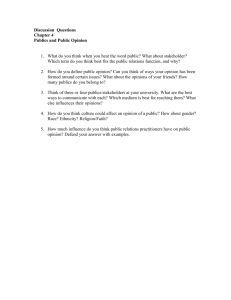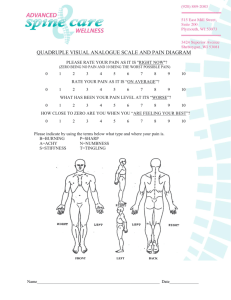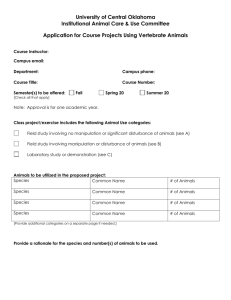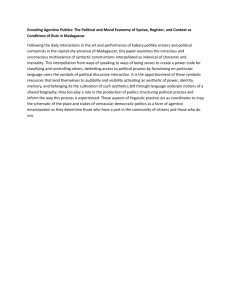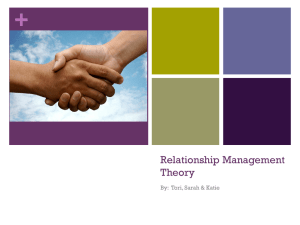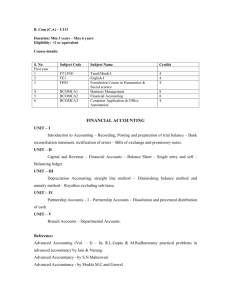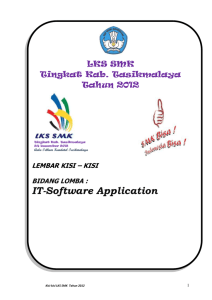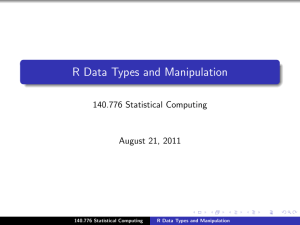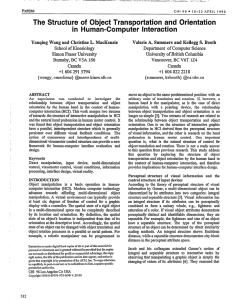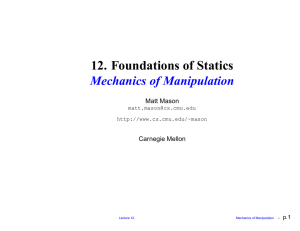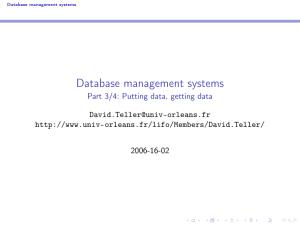PUBLIC RELATIONS
advertisement
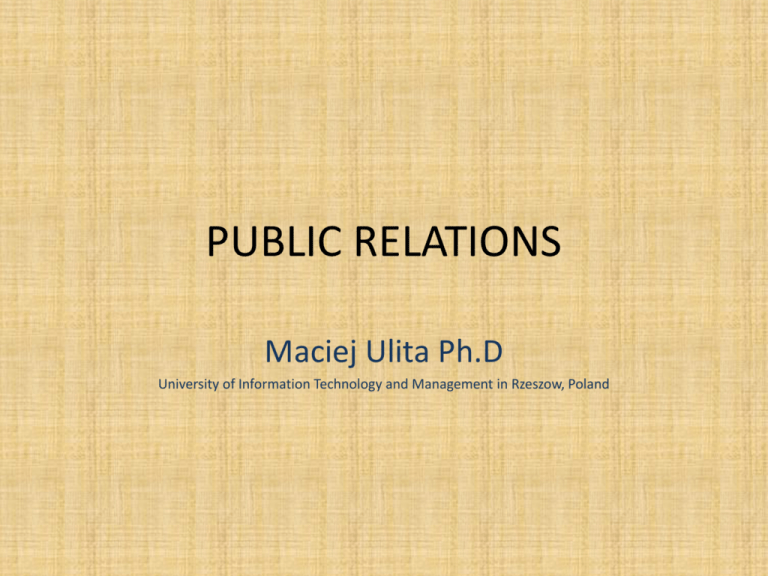
PUBLIC RELATIONS Maciej Ulita Ph.D University of Information Technology and Management in Rzeszow, Poland Evolution of Public Relations • What PR are? • When it started? • How it started? • What are PR used for? • Are PR necessary? • What would happen if we did not know PR? • Are PR science? What PR are? • Public relations (PR) is a field concerned with maintaining a public image for businesses, nonprofit organizations or high-profile people, such as celebrities and politicians. • An earlier definition of public relations, by The first World Assembly of Public Relations Associations held in Mexico City in August 1978, was "the art and social science of analyzing trends, predicting their consequences, counselling organizational leaders, and implementing planned programs of action, which will serve both the organization and the public interest.” What PR are? • Others define it as the practice of managing communication between an organization and its publics. • Public relations provides an organization or individual exposure to their audiences using topics of public interest and news items that provide a third-party endorsement and do not direct payment. Once common activities include speaking at conferences, working with the media, crisis communications, social media engagement, and employee communication. What PR are? • The European view of public relations notes that besides a relational form of interactivity there is also a reflective paradigm that is concerned with publics and the public sphere; not only with relational, which can in principle be private, but also with public consequences of organizational behaviour. • A much broader view of interactive communication using the Internet, as outlined by Phillips and Young in Online Public Relations Second Edition (2009), describes the form and nature of Internet-mediated public relations. It encompasses social media and other channels for communication and many platforms for communication such as personal computers (PCs), mobile phones and video game consoles with Internet access. What PR are? • Public relations is used to build rapport with employees, customers, investors, voters, or the general public. Almost any organization that has a stake in how it is portrayed in the public arena employs some level of public relations. There are a number of public relations disciplines falling under the banner of corporate communications, such as analyst relations, media relations, investor relations, internal communications and labour relations. • Other public relations disciplines include: • • • • • Financial public relations - providing information mainly to business reporters Consumer/lifestyle public relations - gaining publicity for a particular product or service, rather than using advertising Crisis public relations - responding to negative accusations or information Industry relations - providing information to trade bodies Government relations - engaging government departments to influence policymaking What PR are? Basically PR are to know what to say, when to say it, and using what sort of communication tool. In other words – PR means to control communication. When it started? When it started? It seems that It is important and PR started when usefull to be able to people realized that „manipulate” others Digression Manipulation (Latin: manipulation – trick, stratagem) – in psychology and sociology it is a deliberately inspired social interaction which is to cheat a person or a group of people in order to force them to act against their good and interest. Usually a person or group of people is not aware of being manipulated. The one who manipulates is always willing to achieve some personal goals. In general – manipulation is a form of intentional influence on others in order to make them act unwary and to realize goals and needs of the one who manipulates. From ethical point of view manipulation is considered as immoral. Digression Persuasion – (Latin - persuasio) – an art of convincing. Differs from manipulation because it will not be harmful (for a person being persuaded) in future. In persuasion three techniques of influence are used: asking for taking certain position in discussion and starting certain action, suggesting wanted interpretations and evaluations, rational argumentation of presented ideas. Persuasion, at least in theory, is meant not to harm anyone. It is just a way to look for compromise. (Otherwise it becomes manipulation). What are PR used for? • What is most important is the fact that PR is for promoting the organization while marketing is just for promotion of certain product. • The main goals of PR are: • Check the attitude of „surrounding”, • Create strategy and procedures towards public interest, • Plan and run certain program in order to gain „surrounding’s” understanding and acceptance. What are PR used for? PR specialists are basically „translators”. Their task is to explain philosophy, policy, programs, actions and behavior of board to the public, and public attitude and response to the board In order to achieve it, they have to: - Get attention, - Get acceptance, and what is most important: Make public react but first They have to know what board thinks! (and why… PR specialists have to know boeard motivation) PUBLIC BOARD Complex meaning of „PUBLIC” PR PUBLIC or PUBLICS? In order to show the true face of PR one should say that PUBLICS is better to describe PR because PR are RELATIONS WITH VARIOUS GROUPS FROM PUBLIC SPHERE Complex meaning of PUBLIC • Internal and external – board and others inside the institution and this what is not directly connected with the institution (such as: media, government, educational institutions, clients, suppliers local community) • Main, secondary and marginal, • Traditional (what we have today) and future (what we may have in some time). • Followers, antagonists and undecided Banks International community Trade Unions Neighbours communities Dealers Certain groups of interest Clients 20 most important groups which are public („surrounding”) for typical multinational corporation Executive Legislative Multinational corporation Academic society (Fraser P. Seitel, PR w praktyce, Warszawa 2003) Unions Co-ownes and share holders Administration Managers Workers families Opponents Investors Media Board Supliers Complex meaning of PUBLIC other criteria of classification built on life style • Those, who make it real – poses the biggest wealth and power • Fulfilled – have huge supplies, active specialists or pensioners • Believers – fulfilled but with no supplies • Achievers – big supplies and they want to have position • Pretenders– with less supplies then achievers but social status is important for them • Experiencing – huge supplies, active and have tendency for risk • Makers – small supplies, but actively working • Strugglers – smallest supplies Characteristic built on life style may be really useful for marketing and PR decisions helping with establishing target groups Summary • Ethics, truth, credibility are values which constitutes good PR whilst mistification, hiding information and deformation makes it bed • Building reputation needs time and effort • PR must be permanent • Abraham Lincoln said: Public opinion is everything… with it nothing can go wrong. Without it nothing can go right. One who forms public opinion will go further than one who makes laws or just announces decisions. Something to think about 1. 2. 3. 4. 5. Why PR is often misunderstood? What is the meaning of Internet for PR? Why PR specialist is basicaly translator? What constitutes honest PR? What ethic issiues appears for PR as a consequence of development of Internet? THANK YOU ©Dr Maciej Ulita
